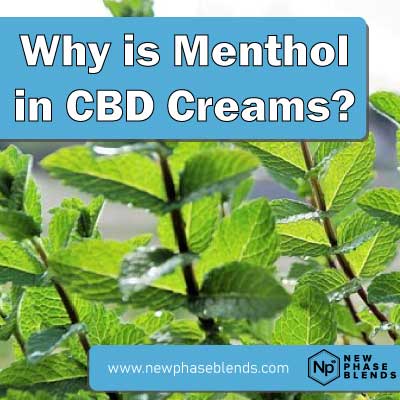Did you know hemp farming is NOT marijuana farming?
Hemp and marijuana are two different species of the cannabis plant.
Unlike its infamous cousin, hemp has a low total THC content (under 0.2%) and can be legally grown in the UK.
The plant is also used in many products, making hemp farming a lucrative option for growers.
Ready to learn everything about hemp farming?
Jump to:
Is Hemp Farming Legal in the UK?
British farmers can legally grow hemp, but with a few restrictions:
- The hemp they grow can be used only for commercial purposes — for industrial uses or to obtain hemp seed (for hemp seed oil production and food products).
- To start hemp production, UK farmers need to acquire a hemp license issued by the Home Office.
- British farmers can only farm Cannabis sativa with a total THC (tetrahydrocannabinol) content of less than 0.2%.
- Each licensed hemp grower can practise hemp cultivation, but the hemp license allows them to use only the seeds and stalks for commercial purposes.
You might be wondering… What about hemp farming in the EU?
Industrial hemp is legal to farm across Europe, and the EU has similar hemp cultivation regulations. For example, the hemp variety should have a low total THC content (up to 0.3%).
Back to contents
5 Benefits of Hemp Farming
Some significant benefits of hemp farming include:
1. High Returns
As hemp’s popularity across various industries grows, so does its demand.
The hemp industry in the UK alone is currently valued at approximately £11 million and may reach £1.3 billion by 2030.
Bottom line?
Hemp’s growing popularity makes hemp farming a lucrative opportunity for any farmer looking to tap into this vast market.
2. A Wide Market
Did you know there are around 50,000 known uses for hemp?
Let’s look at some specific industries that make hemp products:
- Textiles: Hemp has excellent prospects in the textile industry. It has 3-4 times the tensile strength of cotton. Its durability also makes it a more environmentally attractive alternative to cotton-based clothing.
- Food: Hemp seed products are a great source of protein, fibres, vitamins, omega-3, and minerals. This makes whole hemp seeds beneficial for human and animal health. On the other hand, de-hulled hemp seeds are great for smoothies, oats, biscuits, and bread. You can even use hemp seed oil as cooking oil or mix it into your salads.
- Construction: Three main construction products are made with hemp — lime hemp concrete (known as hempcrete), hemp wool, and fiber board insulation. Many of these hemp products are also considered more environmentally friendly alternatives.
- Paper: Hemp fibre is used to produce hemp paper, including banknotes, canvases, archival papers and filter papers. Amazingly, you can recycle hemp fibre paper 7-8 times, and it’s stronger than standard paper.
3. Ease of Cultivation
In agriculture, hemp is a dream crop for every farmer.
Why?
This cannabis plant:
- Provides excellent yields
- Is a low-maintenance crop
- Doesn’t need a lot of water
- Requires fewer pesticides, herbicides, and fertilisers
Despite being better suited to a moderate, humid climate, the hemp variety is adaptable.
So hemp production can occur in various conditions while maintaining good plant health.
4. Positive Impact on The Environment
The hemp crop grows fast, provides a high yield and requires less input from hemp growers.
Even better?
Hemp production has several environmental benefits:
- Absorbs and stores carbon: When it comes to absorbing carbon (one of the leading causes of climate change), hemp outperforms most crops. For example, hempcrete is a carbon sequester, meaning it’s a building material that absorbs more carbon than the amount required to produce it.
- Prevents soil erosion: Thanks to its dense leaves, the hemp crop covers more surface area on the ground, helping the soil retain water. Its roots are also quite long, which helps hold the soil together better.
- Increases biodiversity: Hemp flower buds provide pollen to insects when many other plants are not in the growing season (in July-September). It also appears to be one of the most biodiversity-friendly crops, making it beneficial for the overall plant and animal health in the area it’s grown.
- Is pesticide-independent: Hemp is usually resilient and grows quickly, maintaining plant health without much input from the hemp farmer. Plus, it doesn’t have many natural predators.
| Fun Fact: Did you know hemp biomass is used to make biofuel? The two types of biofuel that utilise hemp are bioethanol and biodiesel. |
5. Can Prevent Plant Disease
The use of hemp in crop rotation helps break the “cycle of diseases” (the development of a pathogen in plants).
How?
Substituting the infected crops with hemp removes the disease from the crop rotation, ensuring better plant health.
Additionally, hemp is one of the best substitutes because it:
- Is a resilient crop
- Has fewer natural predators
- Requires far less maintenance than many other plants
Back to contents
3 Drawbacks of Hemp Farming
Look:
Hemp farming isn’t all roses.
Some of its significant drawbacks include:
1. Highly Regulated
Due to the strict hemp farming regulations, becoming a licensed hemp grower can be difficult and costly.
Also, hemp licensing permits hemp cultivation of only certain parts of the plant (the seeds and stalks). So farmers can’t utilise the whole plant to maximise profits.
What happens to the unused plant parts?
Hemp farmers should destroy the illegal parts of the plant, resulting in additional costs and labour.
2. Large Land Requirements
Industrial hemp production requires large-scale agriculture to meet demand.
So how much land is needed?
Around 50 acres (or 20 hectares).
So for the small-scale farmer, this may already be an impossible venture. Crop insurance will also be higher as a larger area of crops needs to be insured.
3. Farming Machinery Requirements
The strong hemp fiber can clog and damage standard farming machinery.
Hemp growers don’t necessarily need to buy a new combine harvester, but they may need an upgrade to harvest hemp (an additional expense).
And it isn’t only harvesting you need to worry about…
Processing hemp also requires specialised processor machinery.
Why?
The outer bast fiber and the woody shiv of the hemp plant are used for different products, but they are both located in the stems.
The farmer must separate them, which requires non-traditional farming equipment, adding to the costs.
Back to contents
5 FAQs about Hemp Farming
Still have questions about hemp agriculture?
We’ll answer them.
1. What’s The History of Hemp Farming in The UK?
Hemp first arrived in the UK around 800 AD, and the hemp plant industry in the UK was legal until the beginning of the 20th century.
The plant was mainly used to produce ropes and sails for navy ships.
But by the early 20th century, importing hemp (than growing it on home soil) was cheaper, so the UK hemp plant industry declined.
When did hemp legislation change?
Hemp became illegal in 1928, primarily for its close association with the cannabis plant.
However, it became legal again in 1993 — provided the hemp growers had a hemp license.
2. Is Hemp Farming Profitable in The UK?
Currently, hemp is profitable on a large scale, but it’s less viable for a small-scale hemp producer.
Each hemp farmer must purchase an expensive licence, and much land is needed to grow hemp for industrial purposes.
3. Where Can Hemp Be Grown?
Generally, hemp prefers the following conditions:
- A mild, humid climate
- 500-800mm of rainfall per year
- Fertile loam soil with a pH level between 6.0-7.5
But hemp is a resilient plant, so it can be grown in various conditions.
Back to contents
4. How is Hemp Farming Regulated in the US?
Hemp production occurs around the globe, but some countries support it more than others.
For example, in 2018, the US authorised hemp cultivation for fiber, CBD, grain and hemp seed:
- As part of the 2018 Farm Bill, the Agriculture Improvement Act removed hemp and hemp seed from the controlled substance list.
- Falling under this farm bill is the Domestic Hemp Production Program. The program provides several forms of assistance to each hemp farmer, including guidance on becoming a licensed hemp grower.
- The Farm Service Agency (among others) helps hemp farmers become eligible for this USDA industrial hemp program.
Bottom line:
Industrial hemp farming is legal in the US. Hemp farmers also receive more support (than in many other countries) once they join a hemp program.
| Side Note: While there are federal laws governing the overall hemp crop growth and cultivation process, each US state has its own industrial hemp laws. |
5. What’s The Future of Hemp Farming in The UK?
The hemp plant industry has been rapidly developing for a variety of reasons:
The CBD market alone is predicted to increase to £1.3 billion by 2030, and this market is currently dominated by CBD product imports.
With such an untapped lucrative market, we can expect mounting pressure to have the legislation around CBD production, hemp cultivation, and hemp licensing changed.
| Check out: The HEMP-30 initiative, an industrial hemp program in the UK aimed to expand industrial hemp production. |
Hemp Farming: An Industry with a Growing Potential
Cultivating hemp has its pros and cons.
So if you’re looking to grow hemp, use the information we covered to understand its nuances.
Interested in CBD products instead?
Visit GreenBox! We offer high-quality, THC-free CBD oil, gummies, balms, sprays, and more, from the best CBD brands in the UK.




